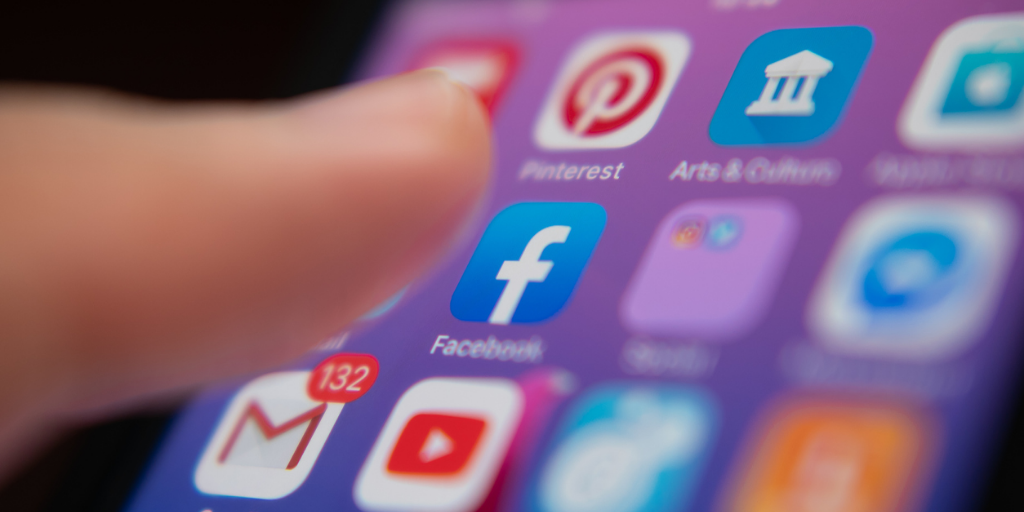
How to Prepare for the iOS Privacy Update: Verify Domain on Facebook and More
With Apple’s new iOS privacy update including significant changes, every business should verify their domain on Facebook and take other steps to prepare. Learn why…
Apple has started rolling out iOS user privacy changes that will affect how advertisers and businesses get and process conversion events data. Advertisers expect to face several challenges regarding monitoring consumer data, targeting, optimization, attribution, third-party placements, and app installs.
The full impact of these changes has yet to come to light. However, it helps to know what to expect and how to navigate around them.
If you target, report, and optimize ads using Facebook business tools, you need to read this article.
What Are the Changes?

In a nutshell, Apple's iOS 14 devices will now require all apps to show a user opt-in before tracking their behaviors across websites, apps, and other platforms. People using iOS 14 devices will have to opt in via a prompt to allow the apps to collect and share specific data.
For some time now, Apple has prohibited third parties from tracking users on privacy-first browsers like Tor, Chromium's Brave, and Apple's Safari. The mobile operating systems have also been coming with an opt-out model. However, the switch to the more aggressive opt-in model may disrupt app ad targeting and attribution.
What does this change mean to Facebook advertisers?
This change will likely impact ads served to iOS 14 users. However, it's worth noting that such users are only dominant in the U.S.
1. Loss of Access to Consumer Behavior Data
If more users refuse to opt in, Facebook will not enjoy access to the information that links user behavior across websites, apps, and other platforms.
Therefore, it'll lower the platform's visibility into what users are doing across experiences. Experts believe this downturn may reduce the effectiveness of targeting over time.
2. Less Ad Targeting
When Facebook lacks distinct details concerning prospective customers, it uses non-personalized information to decide who should be served ads.
Consumers on iOS 14 devices and apps will now expect to get less personalized ads. This change means businesses' advertising efforts will not have an optimum impact.
3. Optimization and Attribution
Apart from the loss of ability to know the viewers of a specific ad, the iOS privacy update means Facebook algorithms will find it hard to determine an ad's impact.
Consequently, these algorithms will be blind to the number of clicks that led to conversions like installs, downloads, and purchases.
The loss of visibility into specific viewers means you can't pinpoint which converted customer saw the ad.
4. Third-Party Placements
Did you know that Facebook knows an app's user better than the one who developed it? Through Facebook's Audience Network, you can place your advertisement into apps, games, and other non-Facebook properties. Such ads tend to bring excellent results because you can target users and attribute from the origin of positive outcomes.
However, the new changes with the iOS privacy update will negatively impact the ad's effectiveness in tracking behavior in third-party platforms. This reduced ability to customize and laser-target ads may lead to reduced ad revenue.
5. App Install Objectives
One way of conversion objective optimization is the app's installs. For such insights, Facebook relies on a signal from the device.
Therefore, the optimization will be hard for iOS app installs. Facebook is now requesting developers to embrace its newest SDK version that is compatible with the new Apple SKAdNetwork API, and open a dedicated iOS 14 ad account to support these ad campaigns.
What Should You Do Now?

Our campaign optimization efforts may suffer from this change as the ability to retarget or create lookalike audiences in iOS devices is likely to decrease. However, here are some things we can do to navigate around the situation, starting with taking steps to verify a domain on Facebook…
1. Verify Domain on Facebook
Facebook suggests that advertisers and businesses using the platform should get their domain verified if they plan to serve ads for conversion events on their website. This step will show that you've connected your domain to your Business Manager and that you own it.
For you to be able to do this step, ensure you're…
- Using Facebook Manager
- The owner of that domain
- A full admin in the Business Manager
- Advertising from a website that is under your control
- Choosing only one of the three verification options
(Not sure how to verify your domain? Click HERE to get our free, step-by-step guide.)
2. Upgrade to Facebook's SDK for iOS Version 8.1
Are you planning to serve ads for conversion events in your business app? To boost tailored ads serving iOS 14 users, you need to update to the new Facebook SDK compatible with the new Apple SKAdNetwork API.
That way, you'll be able to get app conversion events as app installs from these devices. Be sure you're an ad admin to do so.
3. Track Events from iOS 14 Devices and Apps
Begin to determine the number of events like leads and purchases reporting from the iOS 14 devices. Breakdown reports will come in handy here. That way, you can know the impact of this change on your reporting.
4. Choose the Conversion Events
Which conversion events are you going to use? With Facebook advertisements, you'll only be able to track a maximum of 8 events per domain.
This change will be an issue for advertisers with multiple and complex funnels. So, it's time to decide on the most important events to track. But if you have a few products and a straightforward funnel, you're safe.
5. Focus on Getting Email Addresses
In your ad efforts, try collecting email addresses for your retargeting. That way, you'll not rely too much on Facebook pixel optimization.
Wrapping Up
While the iOS privacy update changes have caught our attention, rest assured that the sky is not falling. By taking steps to verify a domain on Facebook and other proactive measures, we can overcome the changes. Our experts at Viral Solutions are here to offer a helping hand to ensure your business continues bringing in revenue without any interruptions.
Need additional guidance on Facebook domain verification? Click HERE to download our free how-to guide!

